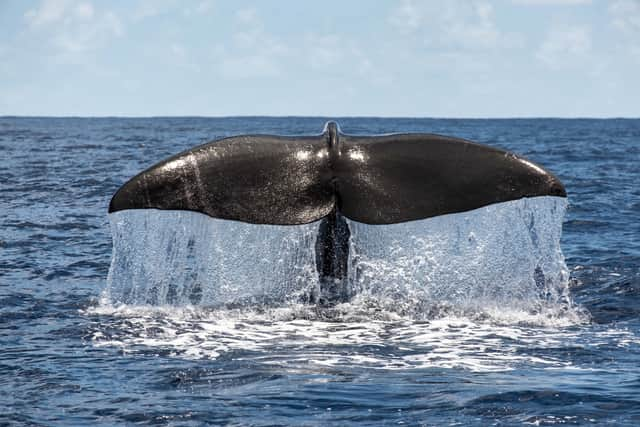Global oceans treaty: Over half of Britons want urgent action on sea sanctuary treaty - on its first birthday
and live on Freeview channel 276
Environmental campaigners are calling on the government to speed up its promise to bring high sea protections into UK law - as polling suggests Britons believe it's starting to lag behind.
A new survey of more than 2,000 people by YouGov, carried out on behalf of Greenpeace, has found that almost two-thirds (63%) do not believe the UK government is doing enough to protect the oceans - or to achieve the global target of protecting 30% of the world’s seas by 2030 (66%). Participants, a representative sample of UK adults, were also asked what they felt were the two biggest threats the ocean faced, with 62% of respondents saying pollution, 35% saying climate change, 28% choosing ecosystem and habitat decline, and 26% picking overfishing.
Advertisement
Hide AdAdvertisement
Hide AdMonday (4 March) marks once year since countries made an historic agreement to protect and restore the world's high seas, in the face of these threats. This evolved into the United Nations' global ocean treaty, which has been signed by 87 governments since it opened for signatures in September 2023 - with the UK government being one of the very first.


The treaty paves the way for creating new protected ocean sanctuaries - the marine equivalent of national parks - where nature can begin to recover. It's a vital step towards the United Nations' agreed-upon biodiversity target of protecting 30% of the high seas by 2030, which is still quite some way off with less than 1% currently protected.
But although 87 countries have signed up, the treaty won't become legally binding until at least 60 of them ratify it into law. So far, just two have; Chile and Palau.
Greenpeace's YouGov polling found that More than half (53%) of respondents also wanted the UK government to "urgently" ratify the global ocean treaty. But despite being one of the strongest backers of the Treaty over many years, the UK government has said it does not intend to sign it into UK law in the current Parliament. In a written statement to Parliament in October, Foreign Minister Andrew Mitchell said that legislation required to ratify the Treaty “is anticipated in the first session of a new parliament after a general election.”
Advertisement
Hide AdAdvertisement
Hide AdNow Greenpeace is urging the government to forge ahead and honour its commitment - as well as the will of the public - as soon as possible. Oceans campaign head Elena Polisano said: "Oceans are the world’s life support system so it’s no surprise that protecting them is such a popular cause. People know that a healthy ocean that is not polluted or overfished is better for everyone’s health and the environment."
But, she said, it was also clear that the British public believed government action was lagging behind. "This is really disappointing because the UK led the way on getting the Global Ocean Treaty over the line - the government must now stop dragging its feet and help turn this agreement into real protection by signing it into law."
The government has taken some positive steps to protect ocean biodiversity in recent months. In January it vowed to end industrial sandeel fishing in English waters, a move conservationists say will be a "game changer" for saving the UK's globally important seabird colonies.
At the same time, Defra also announced a score of other initiatives one year on from the launch of the Environmental Improvement Plan, including targeted restrictions on damaging bottom trawling in 13 more protected areas - to help protect pink sea fans, fragile sponges, and anemones from destruction.
Comment Guidelines
National World encourages reader discussion on our stories. User feedback, insights and back-and-forth exchanges add a rich layer of context to reporting. Please review our Community Guidelines before commenting.
